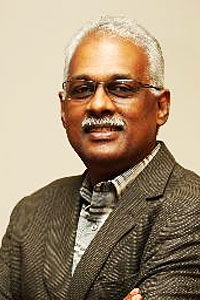In 2017, upon becoming the Prime Minister of New Zealand, Jacinda Ardern acknowledged there will be "good days and bad days". She did well on the good days -- a young leader who was compassionate when needed and gutsy when the situation called for it. But she has done even better in the dark days, following the March 15 shooting in Christchurch that killed at least 50 people.
Asean heads of states could certainly learn from Ms Ardern's commitment to doing the right thing as opposed to toeing to political patronage.
She was quick to embrace all the victims as New Zealanders, and visited communities traumatised by the senseless violence wearing a headscarf -- a symbolic act unthinkable in many Asian countries where religious tensions run high. She has also dismissed the shooter as not "one of us" and vowed not to speak his name in public, denying him the notoriety he so desperately craved.
But she has also gone beyond gestures to swiftly tackle policy. She has announced reforms to gun laws in New Zealand, which will likely include restrictions on the sale of automatic weapons. She has also pledged financial compensation for families of the victims irrespective of their immigration status.
Ms Ardern delivered when her country was in need of a leader. In Southeast Asia, we baulk under the fear of losing out on our largest vote banks. Leaders hide behind outdated principles of "non-interference" and "consensus" to avoid making difficult decisions that show courage, but might be uncomfortable for some.
Southeast Asia has seen and continues to see grave violations of rights against its own people: the massacre of the Rohingya in Myanmar, extra-judicial killings in the Philippines or attacks on human rights defenders in Cambodia. Yet time and again, Asean collectively fails to take action or to speak up against abuses in one of its own member states. If anything, the regional bloc has shielded abusers from scrutiny and accountability, even as democratic institutions are being dismantled or hundreds of thousands are desperately fleeing their homes at gunpoint. On a national level, traditional elites seem far more interested in protecting their grip on power than showing compassion and putting human rights at the heart of their policies.
Even in my own country of Malaysia, we have much to learn from leaders who take a moral stand for what is right.
Our inability to ratify the International Convention on the Elimination of All Forms of Racial Discrimination (ICERD) shows we have a long way to go in being decisive. Pressure from conservative factions has made the government delay promises to ratify the ICERD, even though it's a core international treaty focused on protecting the human rights of the most vulnerable.
The government also continues to use the Draconian Sedition Act, which for years has been a tool to silence dissent, despite election promises to repeal the law. The current investigation into organisers of the Women's Day March on March 8, when hundreds of people took to the streets of Kuala Lumpur to demand their basic rights be respected, is a case in point. The government has announced that the organisers are being scrutinised for protesting without a permit, and for possibly violating the Sedition Act.
The continued demonisation of the LGBT community, our inability to embrace refugees, our hostility towards the stateless persons including children, our contempt for migrant workers, our discrimination against those living with HIV are just some of the many examples where we are falling short. This stands in clear contrast to Ms Ardern's class act as a leader for all who have chosen to make New Zealand their home.
When she visited the families of the victims in mosques, Ms Ardern did not just cover her hair but also assured them of a quick burial for the deceased with the government absorbing the costs. This showed she understood their customs. It would go a long way if we could make a concerted and honest attempt to understand the needs and aspirations of our people.
Imagine a Philippine leader working to tackle the root causes of drug abuse -- poverty and hopelessness -- instead of launching a senseless "war on drugs" overwhelmingly targeting the poorest communities.
Or a politician in Myanmar working to address religious hatred, instead of burying their head in the sand and denying the atrocities carried out by security forces in Rakhine State. In Cambodia, imagine a prime minister who works to build consensus and an inclusive political culture, instead of dismantling and harassing the opposition.
Jacinda Ardern has shown what is possible with real and courageous political leadership. From Jakarta, to Kuala Lumpur, to Manila, Southeast Asian heads of state should take note.
Charles Santiago, MP from Malaysia and Chair of ASEAN Parliamentarians for Human Rights.
